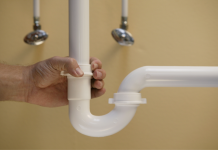Picture this! You reside in an apartment block where the lights often flicker in the corridors. The paint is often peeling away at the entranceway, and your worst fear, getting stuck in the lift due to maintenance issues! This sounds nothing less than a disaster, right?
What if there was an easy and hassle-free solution to this problem? If you do not have the time or expertise to manage your block, then you can simply hire a block property manager!
Not only do they offer security across your residential block but they also help in the property maintenance of communal areas such as lifts, car parks and entrances. Aside from ensuring the happiness of leaseholders, a well-maintained block also helps attract potential residents.
Wondering what exactly does a block manager do? In this article, we’ll explore the critical skills needed to be a successful block property manager.
Essential Skills for A Block Property Manager
1. Exemplary Customer Service
There is no doubt that being a block property manager means working in a customer-facing role. This makes it imperative for all block managers to have brilliant interpersonal skills to ace this job.
Typically, customer servicing involves being present and being able to handle customer queries while solving problems effectively. In fact, several block managers have mentioned that handling tenant complaints is one of the most challenging parts of their job.
Hence, possessing strong customer service skills would simplify this task for you. In addition to this, you need to make yourself available to residents, property owners and landlords at all times. It is absolutely essential to resolve issues and answer questions immediately by undertaking necessary steps and keeping customers well informed.
2. Knowledge
A block manager’s role is extremely diverse, encompassing a wide range of responsibilities that require in-depth knowledge and an extensive skill set to ensure success. From being aware of leases to legislation changes, all this information is vital to succeed in this role.
Furthermore, adherence to standards and a code of practice separates a skilled block manager from the rest. A proven track record and an impressive array of property portfolios managed by you serve as tangible indicators of your knowledge and experience in overseeing all aspects of property management.
For example, by scheduling and coordinating essential building maintenance procedures like air testing in Essex, you can ensure a safe and healthy living environment for residents. This, in turn, would improve your credibility as a property manager.
3. Building Strong Relationships
Working as a block manager means interacting with several different people. This raises the need to develop strong interpersonal skills that can lay the foundation for successful relationships.
It is imperative for a good block manager to place people over their duties and responsibilities. In addition to this, building and maintaining strong ties with your clients, suppliers and contracts can simplify the task.
4. Organisational Skills
From resolving resident queries to completing administrative tasks, your role as a block manager involves multitasking at various levels. You may be expected to organise contractors or manage repair requests from different tenants. Juggling all these tasks simultaneously calls for possessing brilliant organisational skills.
With excellent organisational skills, you can ease the task of implementing procedures and streamlining workloads to a great extent. Moreover, this can reduce the pressure and stress you might feel when burdened with multitasking.
5. Technologically Sound
Although being technologically sound isn’t considered an absolutely necessary skill for a block manager, in the era of digital transformation, it does earn you brownie points.
Much like any other industry, property management is quickly adopting digital practices and actively depending on technology for effective operations. Right from administrative tasks to the usage of communal activities such as car parking, lighting and lifts, block management relies heavily on technology.
Thus, sound learning of new technologies builds a strong portfolio for block managers and brings convenience to their customers too.
6. Legislative Knowledge
More often than not, the first point of contact for residents and property owners is block managers. This makes the know-how of legislation a basic skill for all block managers to master.
Hold Up! You do not need to be a professional when it comes to legislative knowledge. However, a basic level of knowledge in terms of housing, health and safety does go a long way.
Moreover, the legislation is constantly undergoing amends. This makes it essential for block property managers to stay updated on the latest developments on this front.
Another critical aspect to learn along the way is research skills. In case you aren’t aware of certain answers or changes in legislation, an easier route would be simple research with regard to this. Doing your homework reflects positively on your professionalism and curiosity to learn.
To Sum It Up
The need for an experienced and knowledgeable block manager is rising with the increase in residential blocks and apartments. Residents are actively looking for skilled managers who can help manage administrative tasks, maintain communal areas and promptly address resident queries.
To ace your role as a block manager, it is important to have these skills. In addition to this, being patient and flexible goes a long way in addressing the needs of your customers.




